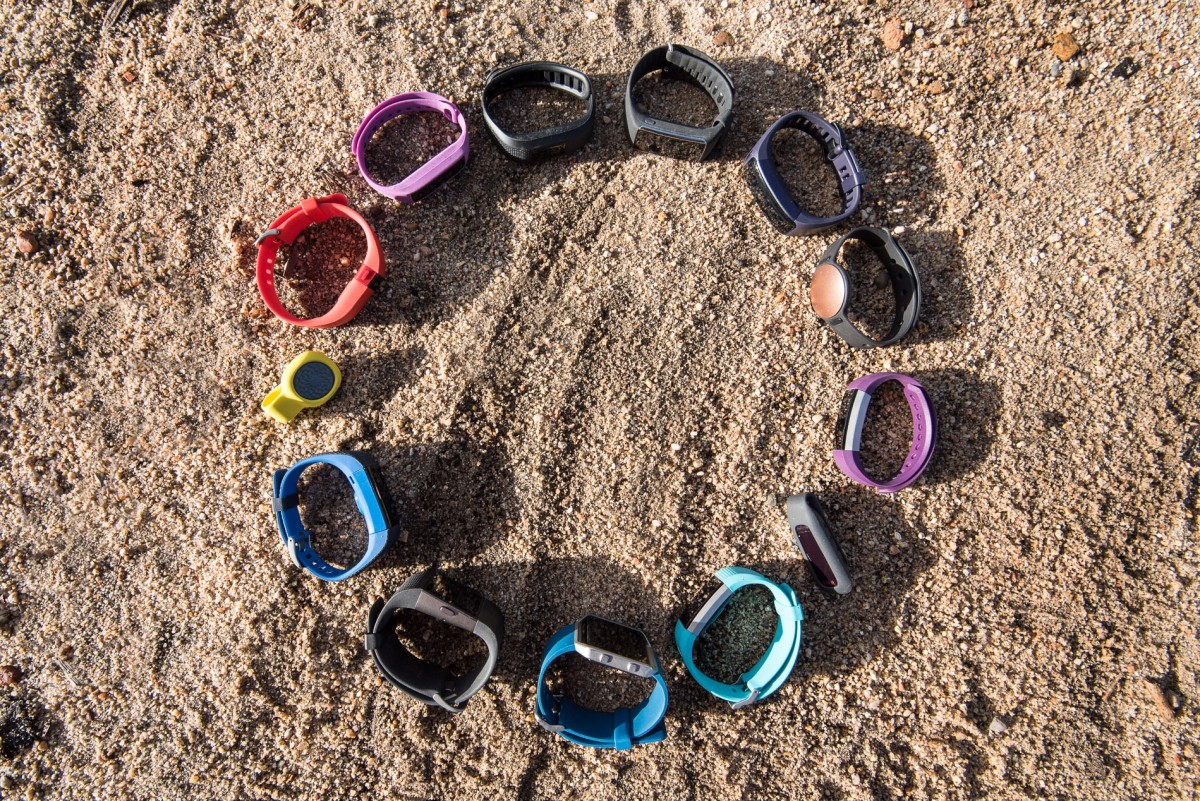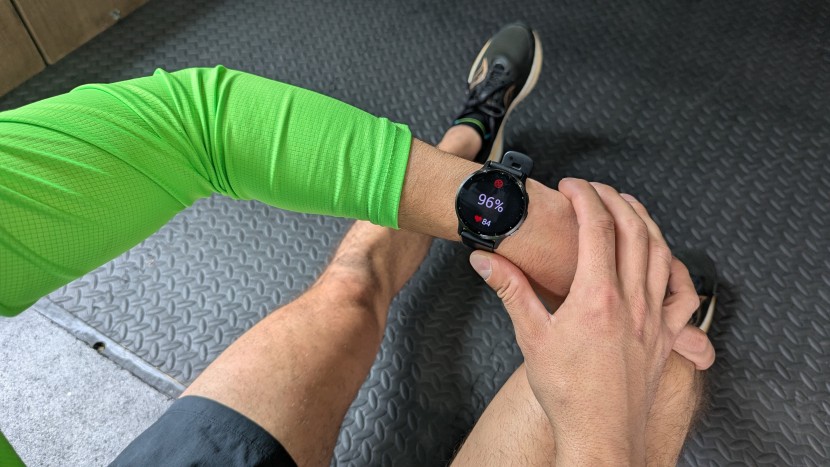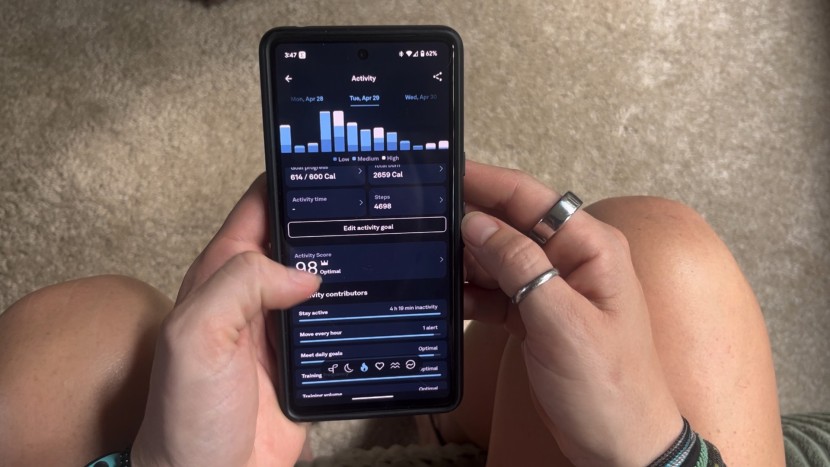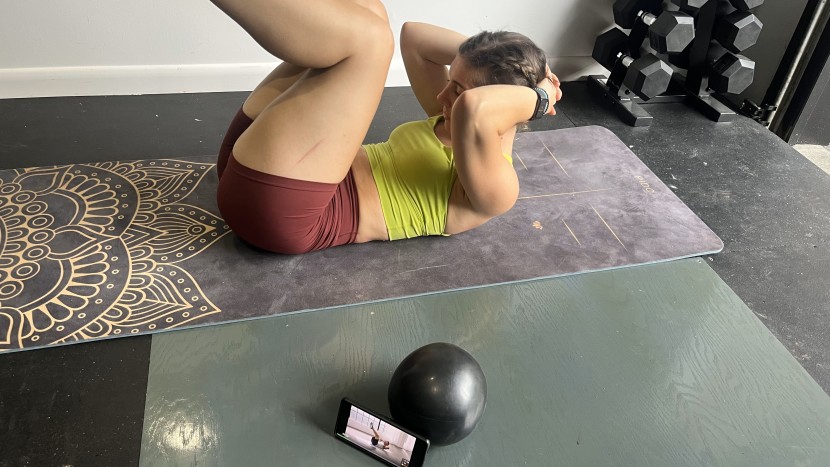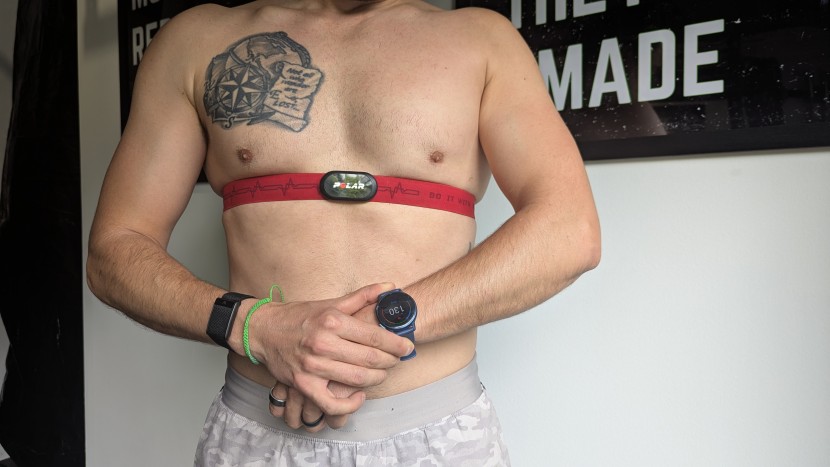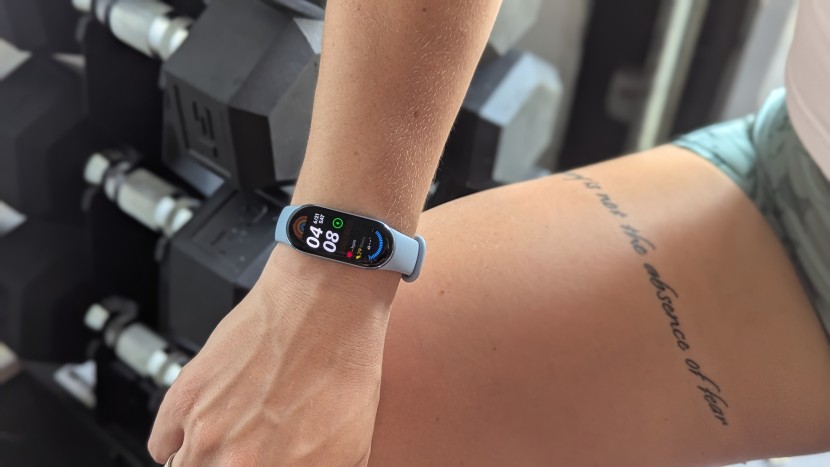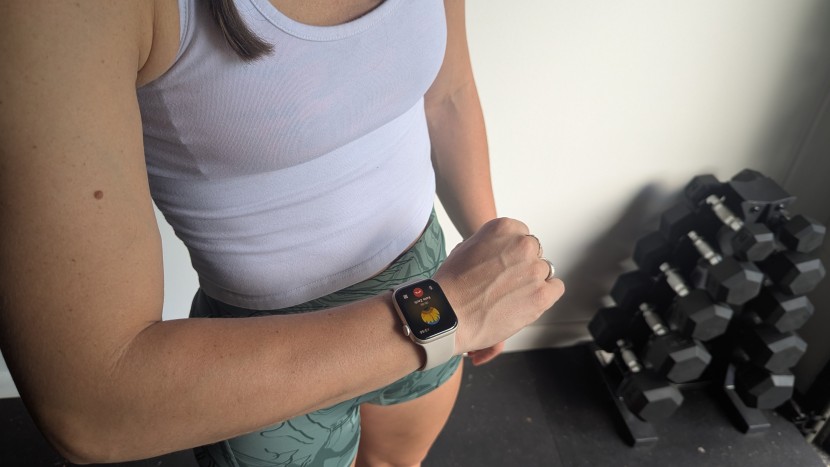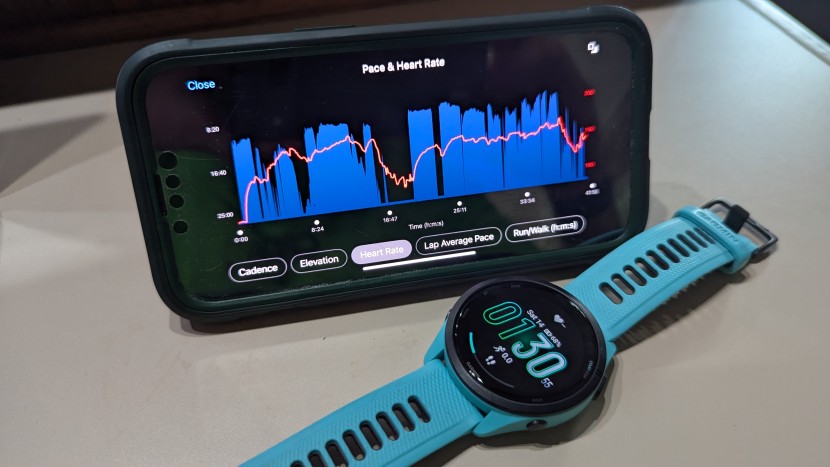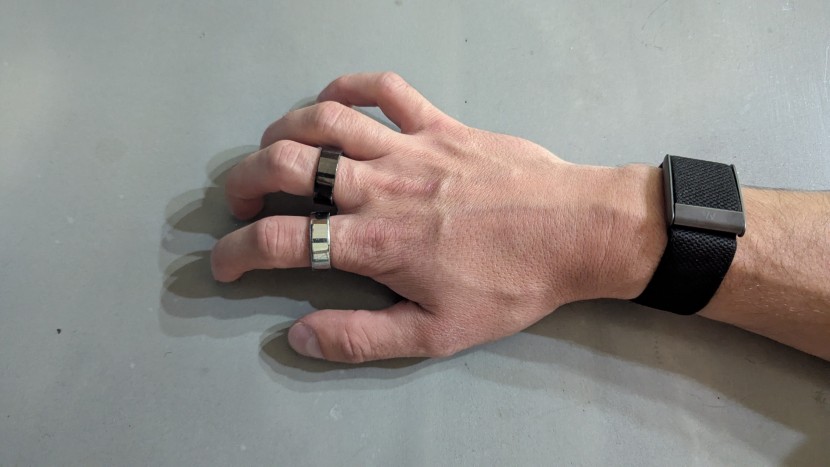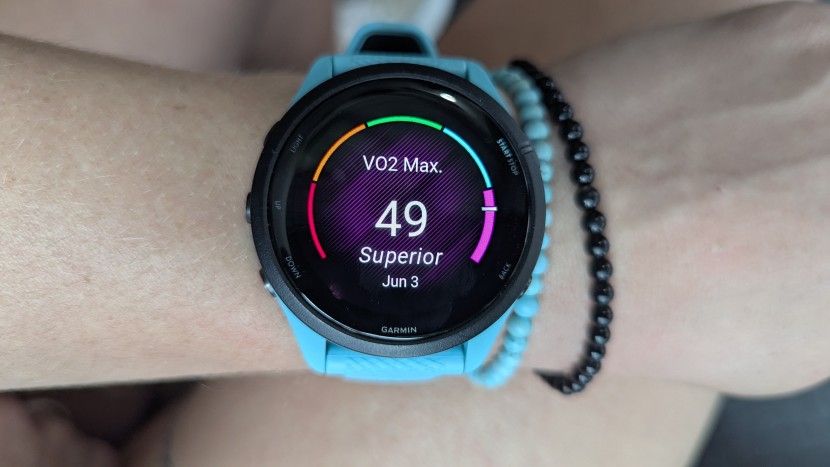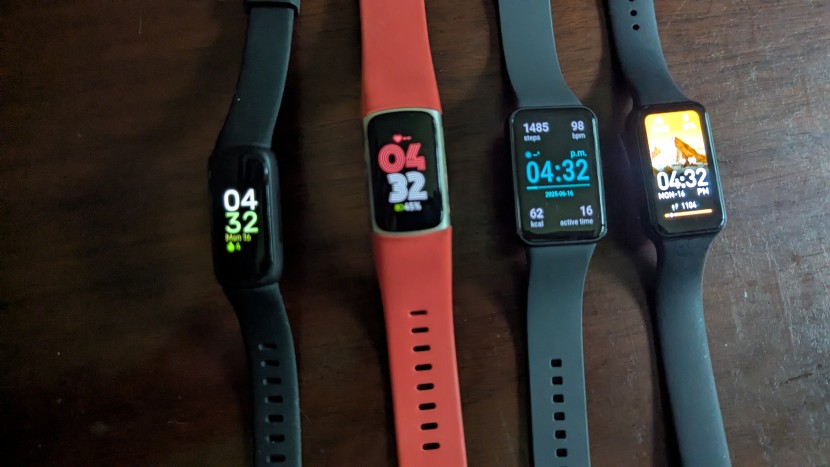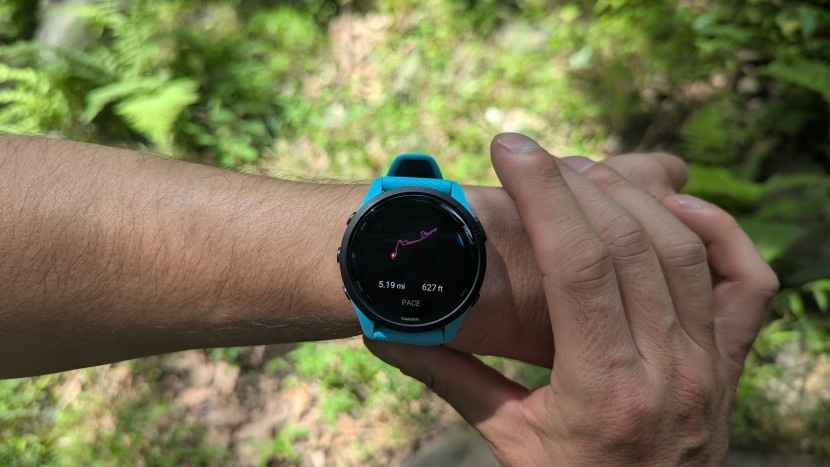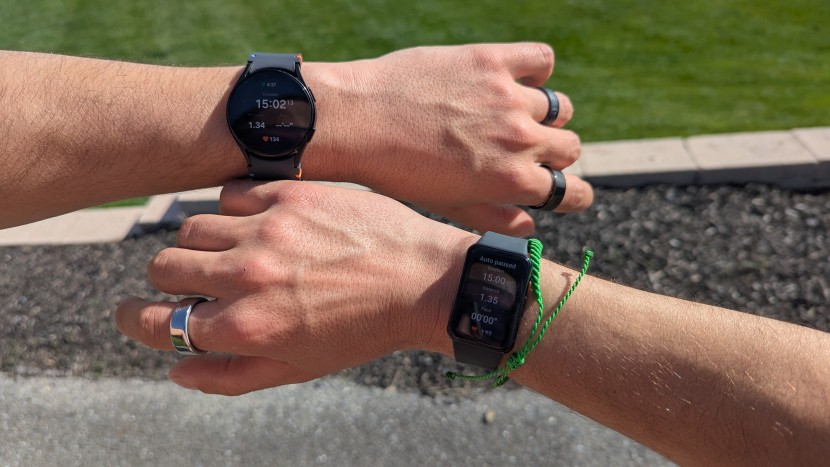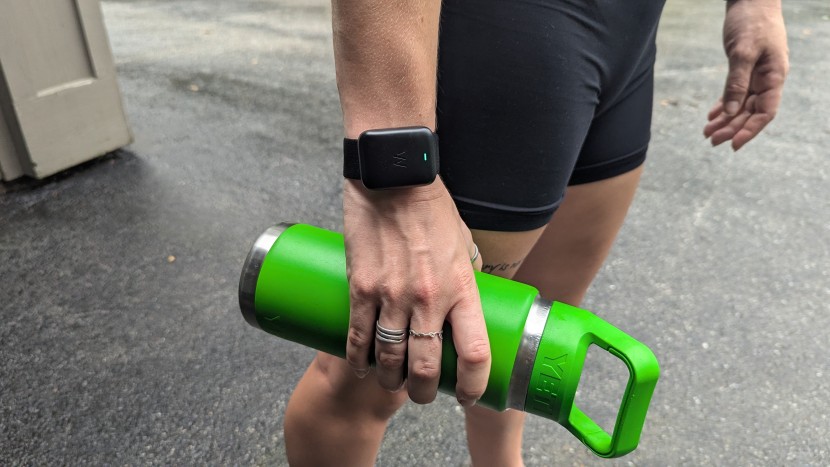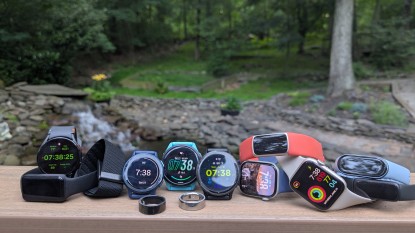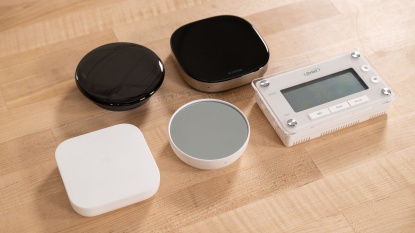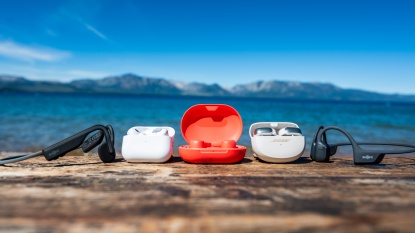Feeling lost amid the world of wearable tech? Wondering why people are obsessed with hitting 10,000 steps a day? Having a hard time finding the perfect tracker? After buying and testing the best, most popular, and highest-rated models available, we put this guide together to help you select exactly what type of tracker is the best fit for your unique activity tracking needs. Keep reading below to find out what separates the different models, or take a glance at our comprehensive fitness tracker review to see the results of our test and to see which model is best to track them all.
What is a Fitness Tracker? Why Buy One?
Are you feeling overwhelmed by information and options when taking on a new fitness journey? Does it sometimes feel like technology changes faster than we do? While the answers to these questions might be yes, the answer to these problems may be counterintuitive. Fitness trackers play a helpful and intuitive role in helping us track data, understand our health information, and reach our goals. By embracing the growing relationship between these little pieces of technology and our personal wellness journeys, we can set ourselves up for success to reach our goals with greater ease than ever before.
What are Fitness Trackers
Fitness trackers are wearable pieces of technology embedded with sensors that help track, interpret, and display data on our activity levels and common health metrics like heart rate, sleep, and steps. The purpose of these devices is to help quantify our activity, monitor health levels, deliver actionable insights, and generally hold us accountable for reaching our fitness and health goals. Like a wearable personal trainer and health coach, these devices automatically track our steps, calories, heart rate, sleep, stress, and even more specific health metrics. They then provide trend analysis, coaching, suggestions, and more to help us improve. Depending on what your specific goals are, there are a variety of styles and types of trackers that will help you on your way.
Who Needs a Fitness Tracker
Fitness trackers are for more than just gym junkies and marathon runners. After the months we've spent testing them, we can confidently say that just about anyone will benefit from wearing a tracker to help them better understand how their activity levels and daily habits can impact or improve their health, sleep, and stress.
Beginner Movers
Just starting to explore a more active and health-conscious lifestyle? A simple fitness tracker can help you build awareness and establish baseline habits to make that journey easier. Many fitness trackers also offer gamification options and little challenges to help keep the process fun and engaging.
Weight-Loss and Wellness Seekers
Movement is part of most weight loss and wellness journeys, and a fitness tracker is the perfect tool to help you quantify and compare your activity levels over time to make sure you're staying on track. Most offer the ability to estimate caloric burn and sleep scores, too, for a comprehensive analysis.
Recreational or Performance Driven Athletes
Athletes or weekend warriors of any caliber can benefit from a fitness tracker. Whether it's simple metrics such as tracking distance, pace, and heart rate, or advanced analytics like VO2 max, lactate thresholds, and GPS-based route mapping, tracking and analyzing data can help you improve over time. Athletes looking to really maximize their performance will also value and appreciate the growing recovery tracking capabilities of trackers to help you know when it's time to push and when it's time to take a rest day.
Types of Fitness Trackers
There's no one-size-fits-all for trackers, and depending on what types of data and activities you're interested in tracking, most will determine what kind of tracker we recommend, let alone which specific model. Before we go into our methodology for determining either of those, we'll provide a baseline on the different types of trackers available.
Basic Activity Bands
Basic bands are usually slim, lightweight wristbands that focus on the fundamentals of activity tracking, like steps, sleep, and heart rate. Many offer core features and low-level analysis. These types of trackers are best for people who are not sure if they'll really use a tracker and want to test the waters before a bigger investment, or those who know they want to keep the investment small. Basic activity bands are also great if you're most interested in “set it and forget it” activity tracking, rather than diving headfirst into detailed analysis of data.
Hybrid Tracker and Smartwatch
Most trackers now fall into this category, with almost all trackers having the ability to receive push notifications and integrate smart features on a broader scale. This category also has the greatest range of features between basic and advanced. On the most advanced side, they can offer detailed metric tracking and full smartwatch capabilities, even including voice calling. These hybrid watches are great for anyone looking to track their sleep and steps or time in a local 5k, all the way up to people who are training to PR their next marathon or track how far they paddle board on the lake.
GPS-Focused Sport Watches
The high-performance-minded fitness tracker that is designed for the athlete or activity-goer who demands the most precision from their technology. These trackers are performance-oriented machines that cater to runners, cyclists, and multi-sport athletes who need precise distance, elevation, and pace data both during an activity as well as for analysis afterwards.
Screenless or Alternative Wearables
In a day and age where we're almost always in front of some sort of screen, many people may be pleased to know that screenless activity trackers are surging in capabilities and popularity. Whether they're wrist-based or ring-style trackers, these minimalist options may be perfect if you're interested in tracking and analyzing data, but don't need to see it live in front of you. What they lack in activity tracking capabilities, they make up for in comprehensive wellness analysis.
How to Pick a Fitness Tracker
Now that we've established a baseline for what kinds of people may desire a fitness tracker, as well as the different types or styles of trackers commonly available, we can dive into the crux of the issue: helping you understand what kind of tracker is best for your needs. There's no right or wrong answer here; in fact, there could be several right answers! We'll present a series of different scenarios, examples, or needs, and make recommendations on the type of tracker that will work best in those scenarios.
Define Your Primary Goal
If you're just interested in the basics like tracking steps, calories, or sleep, it's probably best to just pick a Basic Activity Band. This style of tracker is a lightweight and cost-effective way to record your total daily activity. Most bands also offer a great battery life and easy phone integrations.
If you're focused on improving performance, or perhaps training for a PR in your next race, we recommend stepping up to a GPS-enabled sports watch. Many of these styles of trackers are great for runners, cyclists, and even triathletes and feature advanced metric tracking. Adventurers and mountain athletes are other people who might benefit from a GPS watch; using precise location tracking can help you find or stay on route, as well as get home! Some GPS watches include barometric altimeters for precise elevation tracking as well.
Do you feel like you're somewhere in between the fitness band basics and high-end GPS? Fear not, there's a perfect middle ground of hybrid fitness trackers and smartwatches. While most of the trackers available now have some level of smart features, these types of trackers truly strike a balance between fitness and lifestyle-focused. Available at a range of price points, they can be simple and no frills, or offer just as advanced metric tracking as the high-end watches, such as VO2 max and ECG tests.
Other Considerations
Once you know the general style of tracker that you're looking for, there are a few other ways that you can narrow down the selection process.
If you're prioritizing smartwatch features, consider leaning towards a fitness manufacturer that operates on the same platform as your phone. For example, the Apple Watches only work with iPhones, and if you have an iPhone, you'll lose out on some available features that Garmin or Samsung watches offer.
If you really value a long baseline battery life and rarely want to charge your watch, we recommend looking towards some of the more basic trackers that draw less power. That said, even some of the high-end models in our lineup offer almost a full two weeks of battery life under standard usage. Other trackers offer less battery life but fast charging times; some of the ring-based trackers can fully charge in under 30 minutes!
Conclusion
While these products can help you improve your fitness and start living a healthier lifestyle, it really lies in your hands to make positive changes. The primary motivation has to come from you. These products can't force you to get out and be active, but they can provide a little extra motivation to help you through the lows and aid you in meeting (and hopefully exceeding!) your fitness goals. Interested in how a specific brand or model performs? Take a look at our fitness tracker review for a breakdown of the top models out there and to find out which products excel and which ones fall flat.

